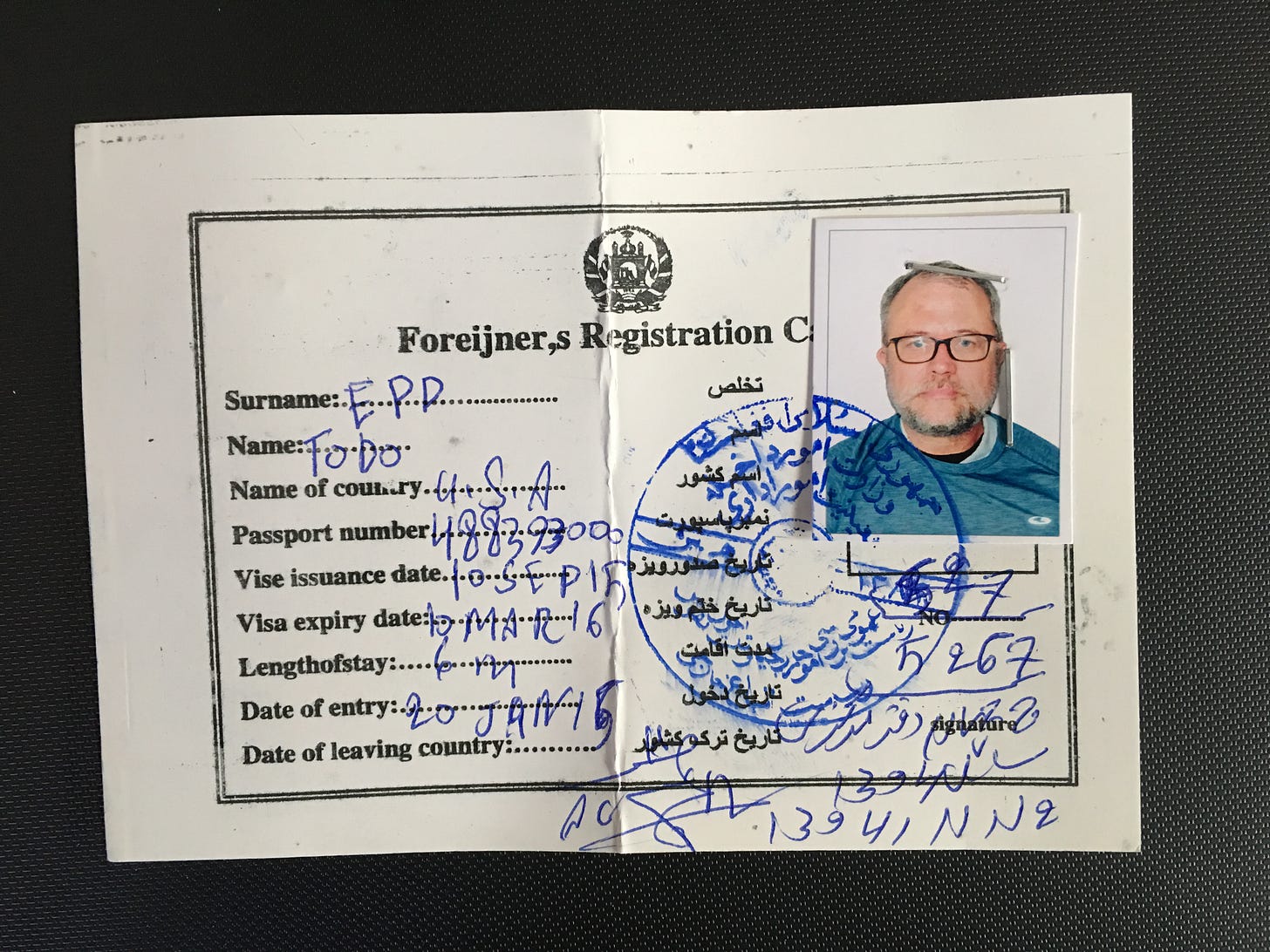OPINION: Secretary Noem is turning her back on Afghans who stood with us
Author lived and worked in Kabul, Afghanistan in 2015 and 2016; Time Running Out on Humanitarian Parole Status
Two Afghan boys who had just escaped the Taliban in northern Afghanistan play rugby at the guest house where the author lived while working in Kabul. Photos by Todd Epp.
By Todd Epp, Northern Plains News
I lived and worked in Kabul in 2015 and 2016, part of a World Bank project trying to reform Afghanistan’s coal sector.
While many expats never left the secure compounds, I traveled the city with my driver, Javid. I met lawyers, students, artists, and shopkeepers—Afghans who believed in their country’s future and in the promises America made.
Today, those same Afghans are at risk of being deported from the United States. And the person in charge of their fate—Secretary of Homeland Security Kristi Noem—is signaling she will let them down.
Roughly 12,000 Afghans were brought to the U.S. under humanitarian parole following the chaotic withdrawal from Afghanistan in August 2021. Their legal status expires May 20. Without congressional action or an administrative extension, they will face possible deportation to a country where women are banned from attending school past the sixth grade and former U.S. allies face retribution from the Taliban.
A fruit vendor on a street in Kabul, Afghanistan.
Secretary Noem, who previously opposed Afghan refugee resettlement as South Dakota’s governor, has not indicated any plan to protect these parolees. Her DHS has floated the idea of prioritizing Afghan Christians—a tiny and heavily persecuted minority, estimated at fewer than 10,000 people.
But what about the thousands of Muslims, many of whom risked their lives to help the United States? What about women like the young burka-clad mother I met on Kabul’s Cell Phone Street, pleading for help for her limp, malnourished baby?
Their only disqualifier seems to be their faith.
I tried to help the people I’d come to know. After the fall of Kabul, I spent weeks preparing paperwork and contacting every office I could—State Department, congressional offices, refugee advocacy groups. Senators John Thune and Mike Rounds were sympathetic. Congressman Dusty Johnson’s staff followed up. Senator Joni Ernst’s office worked tirelessly. But in the end, even their efforts weren’t enough. My Afghan friends are still stuck.
We made promises to people like Javid. We told them we would stand by those who stood by us. Now they are being abandoned—by Democrats, by Republicans, and by the institutions that once carried the weight of American credibility. This isn’t about left or right. It’s about keeping our word.
Secretary Noem knows how to speak plainly about protecting American values. Here’s a chance to show what those values look like in practice. She could use the tools of her office—temporary protected status extensions, special immigrant visa prioritization, or support for the Afghan Adjustment Act—to offer a path forward for these parolees. She could speak up for those who believed in us.
Instead, DHS is silent. That silence is a message in itself.
I don’t claim to be an expert in Afghan politics or refugee law. But I’ve walked the streets of Kabul. I’ve looked into the eyes of people who wanted the freedom we take for granted. The Afghans I knew were hopeful, ambitious, and courageous. They embraced America in ways we don’t often acknowledge or reward. They deserve better than bureaucratic indifference or political scapegoating.
The author’s Afghanistan foreigner registration card.
If we send these people back, we are not just endangering their lives. We are sending a signal to the world that American loyalty is conditional. That our moral leadership comes with an expiration date. That we leave our allies behind.
Secretary Noem, I invite you to talk to people who were there. Talk to veterans, aid workers, and contractors who saw firsthand what the United States meant to Afghans. Talk to those of us who tried, and failed, to bring them here.
We promised to stand by our allies. It’s not too late to keep that promise-and to show the world that America’s word still means something.







